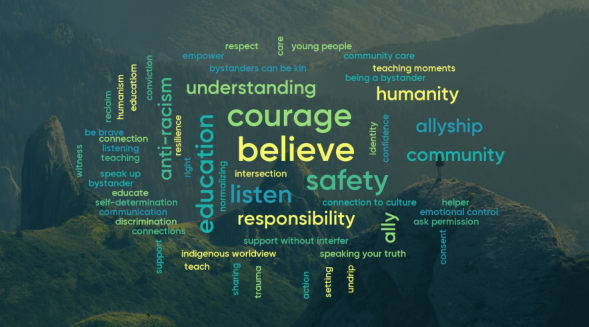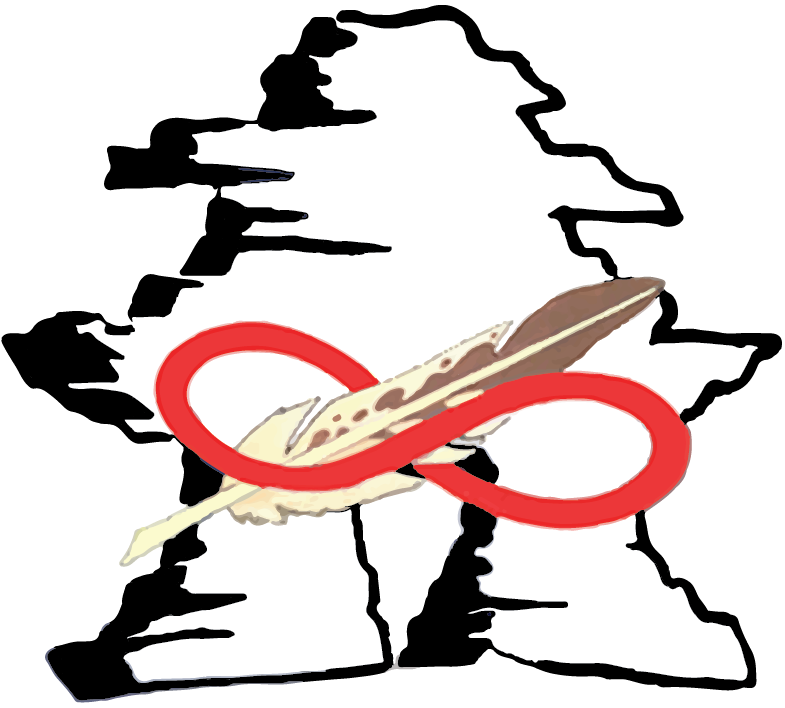Edmonton =>
Posts
Working Together to Address Anti-Indigenous Racism in Calgary
created: Mar 30, 2021

Working Together to Address Anti-Indigenous Racism in Calgary
The theme for United Nations Human Rights Day 2020 was Recover Better. Stand Up for Human Rights, which centered human rights challenges being observed during the COVID-19 pandemic and heightened awareness of discrimination, equity and inequality, faced by those impacted the most by systemic racism.
The purpose of Human Rights Day is to celebrate the adoption by the UN General Assembly of the Universal Declaration of Human Rights almost three-quarters of a century ago in 1948. This was “a milestone document that proclaims the inalienable rights which everyone is entitled to as a human being – regardless of race, colour, religion, sex, language, political or other opinion, national or social origin, property, birth or other status.” Human Rights Assembly.
But along with the celebration of the adoption of the UDHR, Human Rights Day also re-focuses us all on how far we need to go to achieve the ideal of the Declaration for people around the world, including for Indigenous people living in Calgary.
To localize the theme of UN Day, The Indigenous Human Rights Circle hosted a virtual gathering on December 10, 2020 titled Working Together to Address Anti-Indigenous Racism in Calgary. View the live recording below.
This session was held in partnership with HelpSeeker, a social enterprise based in Calgary working to scale systems change to resolve complex social issues, along with a roster of diverse volunteers passionate about people and community.
The event was grounded with a prayer delivered by Grandmother Doreen Spence, a long standing Indigenous Human Rights Circle member, who is deeply invested in human rights activism internationally and in the community of Calgary,. She recently received appointment to the Order of Canada. Doreen also served as a presiding Elder on the working group for the United Nations Declaration on the Rights of Indigenous People.
The event brought together just over one hundred individuals from the Calgary and surrounding area. There was a great mix of community stakeholders, from both long-time and newly engaged partners, representatives, advocates, educators, governing representatives, and service providers.
The full day called upon participants to be present and open to sharing, practice deep listening, and be courageous and curious to the challenging but necessary conversations. As well, The Indigenous Human Rights Circle used this forum to share insight into the process of the Combating Discrimination & Racism Against Indigenous people in Calgary project since inception, holding brave space for meaningful dialogue to increase capacity toward anti-discrimination efforts and to address systemic racism.
The two Keynote addresses provided both a national and local perspective. Dr. Jane Philpott, Dean of the Faculty of Health Sciences at Queen’s University in Ontario and former Minister of Indigenous Services and Minister of Health for the Canadian government. She shared insight to the historical and current context of the high prevalence of racism embedded in the health care systems. Secondly, for a more local perspective and context, the group heard from Samuel Crowfoot. Besides his experience as a Councillor from the Siksika Nation of the Blackfoot Confederacy, he served as a lawyer in the United States and was former Chief Judge for the Pueblo Zuni in New Mexico before recently moving back to Canada – and therefore laid foundational legal context in both countries for the group.
The day included small breakout sessions around four themes that arose from the project, followed by a larger group sharing throughout the day. This was an opportunity to come together to share local perspectives on approaches to addressing racism from an individual and by-stander experience, as well as share wise practices to address the gaps that still exist at the policy and government levels. The day was a success due to the community response of volunteers who expressed interest in wishing to support anti-Indigenous racism efforts in Calgary.
The underlying current throughout the day was the urgent need for the implementation of the Truth & Reconciliation Calls to Action on the individual and organizational level, including set backs and some successes. The framework to guide the process, the United Nations Declaration on the Rights of Indigenous Peoples (UNDRIP) protects collective rights that may not be addressed in other human rights charters that emphasize individual rights, and it also safeguards the individual rights of Indigenous people. It was adopted by the General Assembly on September 13, 2007, by a majority of 144 states in favour. Four years later, four countries including Canada, now support the UN Declaration.
December 15 marks the five year anniversary of the release of the Truth and Reconciliation Commission’s release of the final report. Update 5 years later after TRC Commission released 94 Calls To Action.
The Combating Discrimination and Racism against Indigenous people in Calgary is funded by the Alberta Culture, Multiculturalism & Status of Women, Anti-Racism Community Grant Program and supported by Native Counselling Services of Alberta.
View the recording of the Gathering below.
References
Region:
Edmonton
FOCUS AREA:
Categories:
Updates
Tags:
Community, allyship, discrimination, gathering, human rights, online
Engagement:
Latest posts
